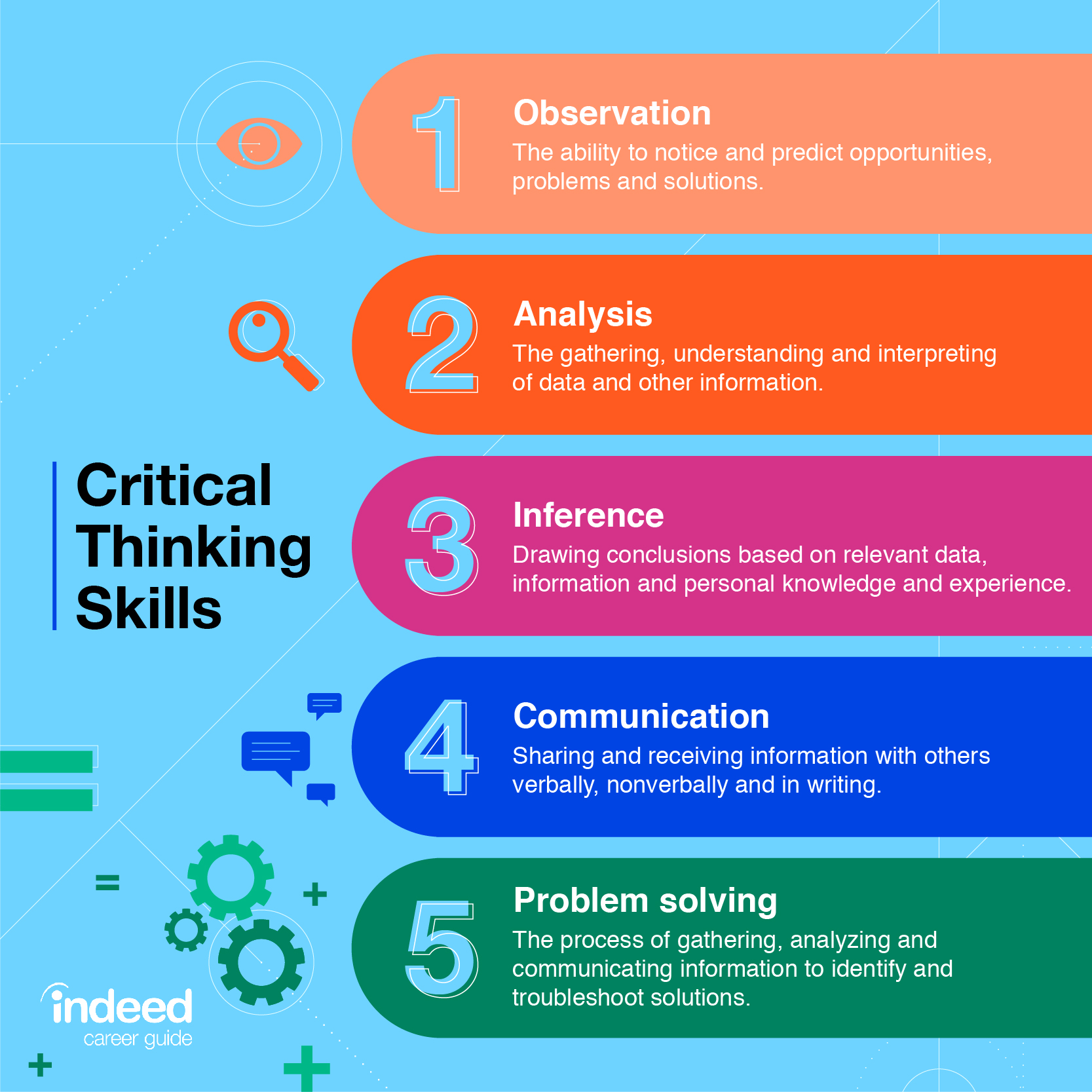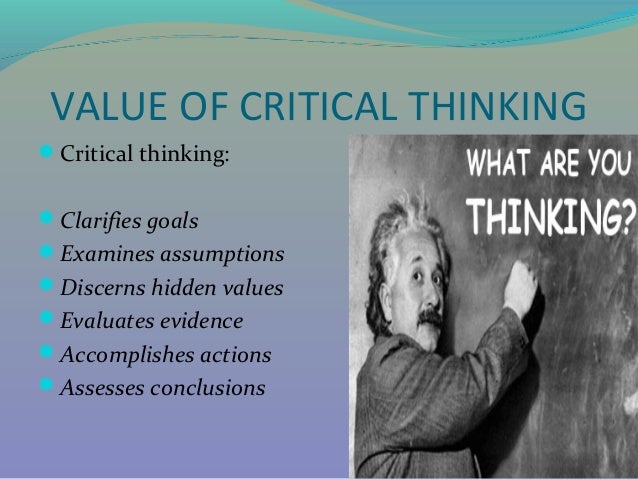2. The value and application of critical thinking in practice -by maria-lavinia.ungur20@bathspa.ac.uk
“Critical thinking is the ability to verify assumptions utilizing
available, tangible, and verifiable data and facts”
In order to develop as a person and professional is crucial to think
critically and to be open-minded. That cannot be done without reflecting on
experienced past events, questioning own beliefs, values and assumptions,
bringing up and rethinking errors and failures that have occurred, as well as
the actions that have ended in success. Critical thinking involves orientation
on details, patterns, constant analysis of own and other people’s actions,
internal and external influences, active listening and the ability to make
decisions. The important point while engaging in critical thinking is the elimination of cognitive biases. Critical thinking cannot be based on
emotions or unwarranted assumptions, only on pure logic and strong evidence
While there are many benefits to critical thinking there are some
disadvantages too. Overthinking is probably the biggest limitation to the development of correct critical thinking. Constantly reliving and reviewing
past event there is a high risk of falling into a depressive closed repetitive
circle of overthinking, which could lead to anxiety and depression and even
mental exhaustion
The observation, attention to smallest details, reflection on own
actions, elimination of personal biases, analytical skills and ability to bring
everything together increases the potential to make well-informed decisions in
practice
The overload of information that arose from the growth of electronic
networks, rapid and complex changes in the millennial society accelerated the
need for critical thinking in order to solve the chaos of fast-changing
environment and more demanding public
In health and social care practice knowledge, personal professional skills and competency alongside awareness and personal reflective habit, enables one to notice human errors, safeguard the people in their care, identify inconsistency, wrong practices or blame culture and, if necessary, “blow the whistle” in a timely manner. In other words, adapting reflective thinking routine and applying critical thinking skills to professional practice on daily basis could enhance clients’ satisfaction level, improve organisational sustainability and overall performance, increase personal professional competence and even save someone’s life.
References:
Jasper, 2013. ELS. [Online]
Available at: https://www.qmu.ac.uk/media/5533/reflection-2014.pdf
[Accessed 26 May 2021].
Jones-Devitt, S. & Smith, L., 2007. Critical Thinking
in Health and Social Care. London: SAGE Publications Ltd.
Kinsella, E. A., 2010. The art of reflective practice in
health and social care: reflections on the legacy of Donald Schön. Reflective
Practice. International and Multidisciplinary Perspectives, 8 September,
11(4), pp. 565-575. https://doi.org/10.1080/14623943.2010.506260
Kolb, D. A., 1984. Experiential learning: experience as
the source of learning and development. Englewood Cliffs(New Jersey):
Prentice Hall. [pdf]
Available at: https://www.researchgate.net/profile/David-Kolb-2/publication/235701029_Experiential_Learning_Experience_As_The_Source_Of_Learning_And_Development/links/00b7d52aa908562f9f000000/Experiential-Learning-Experience-As-The-Source-Of-Learning-And-Development.pdf
[Accessed 26 May 2021].
Levey, S., 2013. Linked in. [Online]
Available at: https://www.linkedin.com/pulse/20140623213931-156563678-giving-feedback-with-the-desc-model
[Accessed 28 May 2021].
Nelson, L., 1980. The Socratic Method. Thinking: The
Journal of Philosophy for Children, 2(2), pp. 34-38. https://doi.org/10.5840/thinking1980228
Oelofsen, N., 2012. Developing Reflective Practice. Banbury
: Lantern Publishing Limited.
Open Minds, 2017. Open Minds. [Online]
Available at: https://openminds.com/next-generation-forum/blog/value-critical-thinking-skills/#:~:text=Critical%20thinkers%20can%20reflect%20on,to%20inform%20their%20decision%20making.
[Accessed 27 May 2021].
The University of Edinburgh, 2019. www.ed.ac.uk. [Online]
Available at: https://www.ed.ac.uk/reflection/reflectors-toolkit/reflecting-on-experience/gibbs-reflective-cycle
[Accessed 26 May 2021].
Timminsa, F., Murphya, M., Howeb, R. & Dennehyb, C.,
2013. “I hate Gibb’s reflective cycle 1998” (Facebook©2009): Registered nurses’
experiences of supporting nursing students’ reflective practice in the context
of student’s public commentary. Procedia - Social and Behavioral Sciences, October,
93(21), p. 1371 – 1375. doi: 10.1016/j.sbspro.2013.10.046
Aveyard, H. (2015) (2013) A Beginner's Guide To Critical Thinking And Writing In Health And Social Care (UK Higher Education Humanities & Social Sciences Health & Social Welfare). Paperback.
Fook, J. (2012. 1st Edition. Critical Reflection in Context: Applications in Health and Social Care Routledge
Free Ethical Learning and Development Resource for People and Organisationshttp://www.businessballs.com/reflective-practice.htm
The Foundation for Critical Thinking website for Students and Professional www.Criticalthinking.org
Nursing Times Journal https://www.nursingtimes.net/publication-index/
Examples of Health and Social Care online Blogs
https://www.theguardian.com/social-care-network/social-life-blog
https://blogs.kcl.ac.uk/socialcareworkforce/
https://www.icarehealth.co.uk/blog/




No comments:
Post a Comment